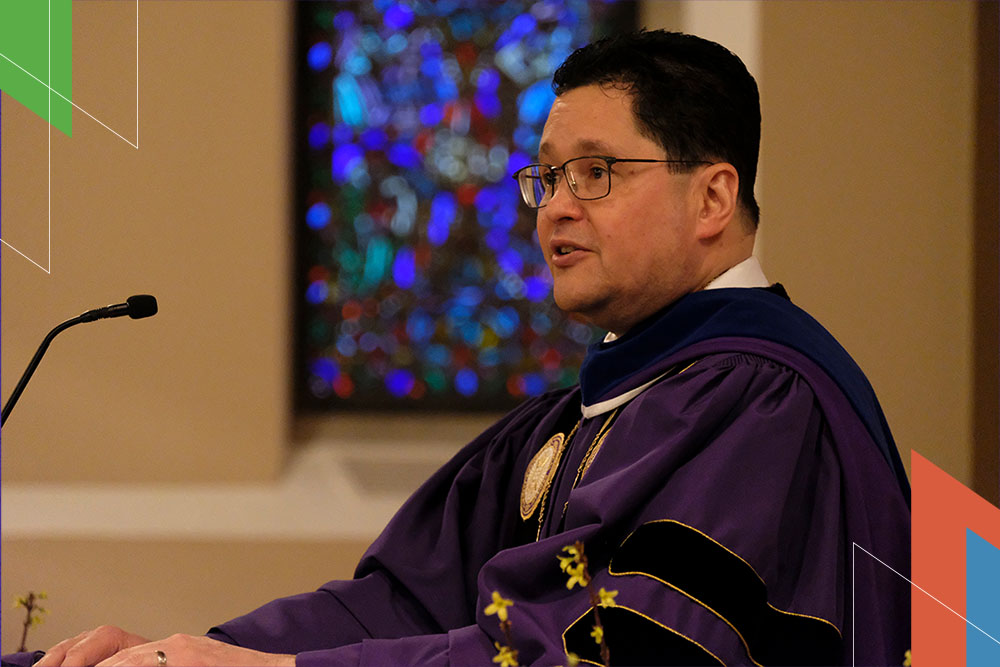Center for Ecological Regeneration: Presidential Charge from the Seminary
April 22, 2022

By President Javier A. Viera
On behalf of the Trustees and Administration of the Seminary, it is my honor to officially launch the Center for Ecological Regeneration and to offer two specific charges for the center and to its inaugural director:
First: Given that we live in a moment in history when the Anthropocene is dramatically altering biological processes and environmental systems, perhaps to the point of irreversible impact and destruction that is global in scale, and that science, technology, and education alone have proven insufficiently capable of inspiring or motivating mass change in human behavior and commitment, and that political will and institutions are weak and often indifferent to the impact of this change because it is most often the poor and disenfranchised who are initially and most cruelly impacted by climate change, the Leadership of this Seminary charges the Center for Ecological Regeneration to keep as central to its work addressing this global dilemma as a spiritual crisis that requires a response that takes into account this dimension of human existence. To put it crassly, our relationship to the earth and its resources is often a reflection of our relationship to Christ and those to whom Christ drew near. As Ecumenical Patriarch Bartholomew has said, “The roots of the environmental crisis are not primarily economic or political, nor technological, but profoundly and essentially religious, spiritual, and moral. This is because it is a crisis about and within the human heart.”
Second: In the same way that the Center must not forget that this work is deeply spiritual, it must also not forget those who are most harmed and impacted by our failure to address the climate crisis with courage and significant change. Remember the poor, those for whom the climate crisis is not a future crisis by a present reality, those whom we too often forget because our own paths do not cross with theirs. As Pope Francis reminds us: “This lack of physical contact and encounter…can lead to a numbing of conscience and to tendentious analyses which neglect parts of reality. At times this attitude even exists side by side with a “green” rhetoric. Today, however, we have to realize that a true ecological approach becomes a social approach; it must integrate questions of justice in debates on the environment, so as to hear both the cry of the earth and the cry of the poor.”

